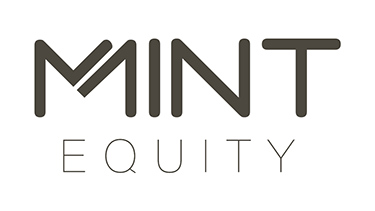When it comes to buying a property, seeing an advertised property that is going to auction can trigger fear for many buyers, particularly those who have previously bid at auctions and missed out. The process of buying a property can be emotionally draining through both the private treaty and auction process, but the devil is in the detail when it comes to a successful purchase under either method.
12 step process to buying a property
For both private treaty and auction purchases, there are 12 steps, however the sequence of those steps is significantly different between the two, particularly if you have secured a home loan approval.
For both processes, the ‘pre-approval and research’ and ‘settlement’ phases are relatively similar, however the process deviates when you get to the ‘offer and formal finance’ phase for private treaty and the ‘bidding and formal finance’ phase.
To show the difference between private treaty and auction buying conditions, we’ve developed a graphic that clearly displays each step in the process. You can see the full document in our Property Buyers Guide.
What’s the main difference between private treaty and auction?
Private treaty
When a property is for sale under a private treaty situation, the real estate agent will provide a price or price guide for the property. You have the ability to negotiate back and forth with the agent on the price and conditions of sale. The property will be listed until a price has been agreed on and the contract of sale has been signed by both parties.
It is standard to have a cooling-off period to enable the buyer to review the contract, obtain a pest and building and/or strata report, obtain a bank valuation, and satisfy any finance conditions for the home loan approval. Every state has a different ‘standard’ number of days for a cooling-off period, for example NSW has a standard 5 days cooling-off period, whereas SA only has 2 business days. If you need more time, your conveyancer or solicitor can request an extension.
If you want to waive your cooling-off period, you’ll need to sign a 66W certificate if in NSW. There are similar forms in other states.
“Always check the contract of sale doesn’t include the 66W certificate before you sign. You will need your conveyancer/solicitor to request the removal of the certificate with the vendor’s solicitor before you sign.”
Once your cooling-off period has expired or you’ve waived your rights, you are now liable to pay the remaining deposit and complete the purchase. Any deposits paid or promised will be lost if you back out of the purchase.
Auction
Generally speaking, real estate agents aren’t able to provide a price guide for properties being sold at auction. They will often refer to comparable sales to provide a price indication. It is up to the buyers on the auction day to decide the value of the property by making bids.
Under auction conditions, you won’t be able to negotiate on the price unless the vendor considers offers prior to the auction day.
Auctions require buyers to automatically waive their cooling-off periods, so you must be confident you have the funds to complete the sale.
As you can see from the process flow, under a private treaty the buyer will have the options to ;
Order a bank valuation to confirm the purchase price matches the value the bank agrees to
Satisfy the finance conditions and secure a formal approval from the bank
A two step process to paying your deposit, minimising the risk of losing a lot of money if you aren’t able to proceed with the purchase
If buying at an auction, it’s important that you finalise your home loan pre-approval and research prior to the auction, as once you are the successful bidder at auction there is no backing out.
“If you require specific conditions like a smaller deposit amount or a longer/shorter settlement date, you need to submit this in writing to the vendor’s conveyancer/solicitor prior to the auction and have those conditions approved before you make a bid.”
Bank valuations under private treaty and auction
One of the steps to buying under a private treaty arrangement is the ability to get a bank valuation done on the property you are purchasing.
This is a requirement of the bank to make sure you haven’t over paid, and the bank is happy to lend you the money based on the property value.
Under a private treaty arrangement, this can be done within your cooling off period. If for any reason, the bank valuation comes in lower than the purchase price and you don’t have the remaining cash to complete the sale, you can withdraw your offer and forfeit your 0.25% deposit.
Under an auction process the bank valuation is only done after the auction and after you have paid your full 10% deposit. If for any reason, the bank valuation comes in lower than the auction price and you don’t have the remaining cash to complete the sale, you will lose your 10% deposit and you may be liable for further costs if you back out of the sale.
It is a rare occasion, but some bank valuations do come in lower than the purchase price. So, if you are a cautious buyer and want to de-risk the buying process, a private treaty with a cooling off period might be your best bet.
Cover photo by Jonathan Borba

